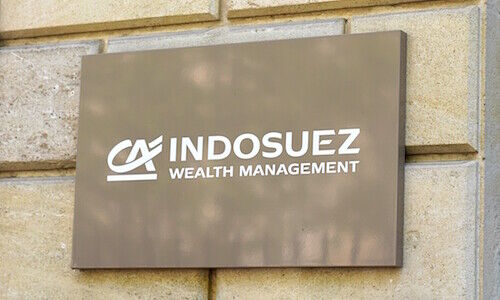Indosuez Wealth Management: «We Recommend More Patience on China»
More patience is required before green-lighting new exposure to Chinese equities, according to Indosuez Wealth Management, despite positive signals about property, tech and foreign relations.
After a tough 2021 for Chinese equities, pressure has continued in 2022 with the CSI 300 Index down nearly 20 percent year-to-date.
Although there are some positive recent headlines – Beijing pledged more focus on stabilizing growth and there is improved optimism on a deal with the Securities and Exchange Commission (SEC) to avoid U.S. delistings – Crédit Agricole’s private banking arm believes more time is needed before reentering Chinese equites.
«Is it time to turn outright positive? We recommend a little bit more patience on China,» said Indosuez Wealth Management’s senior equity advisor Winnie Chiu at a recent virtual briefing attended by finews.asia.
Covid-Driven Slowdown
Currently, the major focus in China is on its slowing growth driven in no small part by the ongoing zero-Covid policy – over 40 cities in the country representing 26 percent of GDP are currently under some form of mobility restrictions.
«The pandemic has certainly taken its toll and economic activity was severely disrupted,» said Chiu. «The central government, however, has outspokenly said that they are not going to keep economic growth on the sideline because of [Covid].»
According to Chiu, China could turn the corner very soon, assuming that the number of new infection cases decreases while effective policy support arrives in one or two months’ time. Under this scenario, the bank expects China’s GDP to rebound to the 4.5-5 percent level in the second half, though this would still fall short of the country's announced 5.5 percent target.
Property, Tech Tailwinds
In 2021 and 2022 thus far, China’s property and tech sectors have both been the subject of significant market pressure, most notably from debt concerns and regulatory tightening, respectively.
On the former, Indosuez highlighted recent plans by the government to optimize the supervision of property developers’ escrow funds – effectively, pre-sale proceeds – which could help push default rates lower.
And on the latter, the French private bank noted that the recent call for new measures to promote the healthy development of the internet sector could act as another positive signal to the overall market and help restore confidence.
U.S.-China Relations
Outside of the economy and markets, geopolitical risks are also on the rise, especially from U.S.-China relations, and Chiu believes that there will be «no clear turns» for better or worse this year.
Although there are some positive takeaways, such as China’s keenness to strike a deal with the SEC to avoid delistings or Washington’s recent statement to consider removing tariffs to combat inflation, Indosuez remains neutral on the political outlook for the relationship between the world’s two largest economies.
«[U.S. and China] have opposite stances in terms of regional security, technology, ideologies. I would probably describe U.S.-China relations as politically cold but economically getting a little bit warmer,» Chiu explained.
Asia Outlook
For the time being, Indosuez Wealth Management is neutral on China in the short-term, though it remains positive in the long-term.
In the broader Asia region, the bank is also cautious on India due to high valuations and commodity headwinds. On Malaysia, it underlines the lack of investable companies and corporate governance concerns despite its export-driven recovery.
It is selective on Taiwan and South Korea due to supply chain disruptions, though these two markets are expected to benefit from shifting global consumer behavior.
And the bank is positive on Singapore from reopening trends, reasonable valuations and higher earnings growth as well as Indonesia as higher oil prices could provide protection from the current market environment.




























